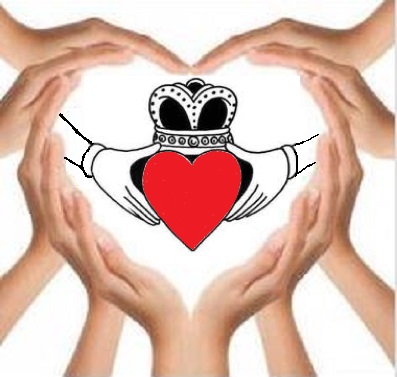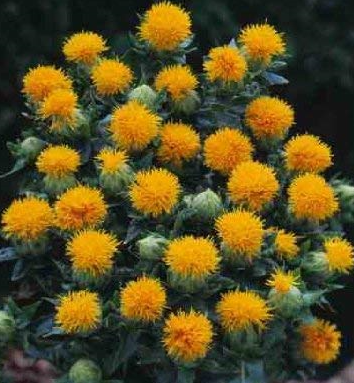 You Don't Need Your Knots -- We Knead Your Knots
You Don't Need Your Knots -- We Knead Your Knots
Safflower Essential
Oil

Safflower, flowering annual plant, native to
parts of Asia and Africa, from central India through the Middle East to
the upper reaches of the Nile River Valley of Egypt. The safflower plant
grows from 1 to 4 feet high and has flowers that may be red, orange,
yellow, or white.
One of the oldest plants, Safflower blossoms
were used in tea infusions intended to facilitate the expulsion of
phlegm and to soothe symptoms of fever. It was believed that drinking
Safflower tea would also calm hysteria, and topical skin conditions. Oil
obtained from the seed is the chief modern use of the plant for the last
fifty years or so.
When used on the
skin, Safflower Oil is a lubricant skin and reduces moisture loss and
keeps the skin hydrated.
It
is also rich in the anti-inflammatory and vitamin E, which provides
relief from itching, dryness and flaking and drives out bacteria, dirt
and impurities from the skin by breaking down dead skin cells.
The
anti-inflammatory properties help to calm and heal the skin and
Safflower Oil boosts skin regeneration, allowing spots to heal faster.
Safflower Oil is
readily absorbed by the hair and hence it nourishes and protects the
hair from damage. Massaging Safflower essential Oil into the scalp
increases circulation which strengthens the hair follicles and
encourages strong, healthy hair growth, prevents protein loss, and
fights against dandruff and provides relief for a dry, itchy scalp by
providing an hydration and nutrition where it’s needed most. Safflower
Oil also encourages the production of properties to promote strong hair
and helps hair recover from the after effects of chemical based hair
colours.
Safflower Oil can be used as non-greasy carrier
oil for an aromatherapy massage by diluting with essential oils of
choice. Safflower carrier oil is used in the
Blood Circulation,
Colds & Congestion,
and Skin Complexion
massage oil blend treatment at Oriental Massage Galway (OMG).






